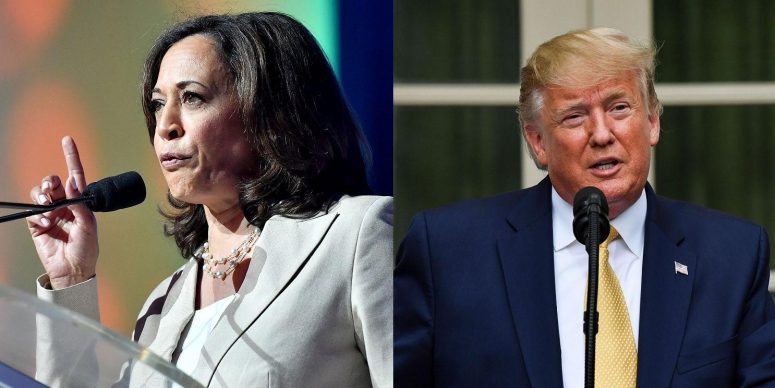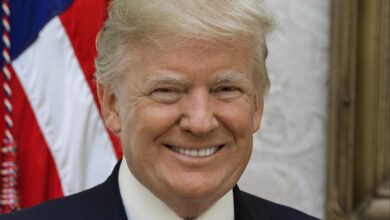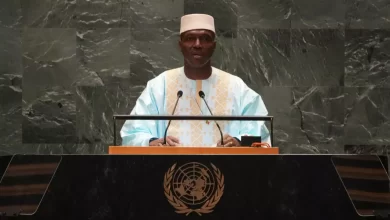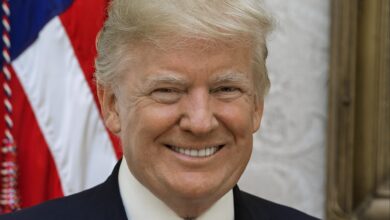Trump And Harris Trade Barbs In Key Swing State Showdown

In a heated race toward Election Day, U.S. Vice President Kamala Harris and her rival, former President Donald Trump, engaged in a day of spirited campaigning across the critical battleground states of Wisconsin and Michigan. Both candidates rallied supporters and underscored their sharply contrasting visions, culminating in competing rallies in Milwaukee as they approached the final stretch before November 5.
Trump, in characteristic form, fired up his base with blunt, provocative rhetoric. At a rally in Michigan, he declared, “I don’t want your money, I want your damn vote!” highlighting what he framed as a battle for the future of the country. His message was punctuated by inflammatory comments aimed at one of his Republican critics, former Representative Liz Cheney. Trump, referencing Cheney’s hawkish stance on foreign policy, conjured a graphic image suggesting violence—a statement that drew significant backlash and accusations of incitement. Harris, addressing the remarks, condemned Trump’s words as “disqualifying,” asserting that “anyone who uses that kind of violent rhetoric is disqualified and unqualified to be president.”
The day’s high-stakes campaigning reflected how pivotal the Midwest “blue wall” states are to both campaigns, with Wisconsin and Michigan among the seven swing states that will likely determine the election outcome. In Wisconsin, Harris attended union events and was joined by high-profile supporters like rapper Cardi B, who rallied the crowd around the historic potential of electing America’s first woman president. “Are we ready to make history?” Cardi B asked the energized crowd.
Beyond the campaign trail, Trump’s rhetoric stirred additional controversy online, where social media is awash with misinformation about voter fraud and immigration, some of which is reportedly linked to Russian operatives. Billionaire Elon Musk, owner of the X platform and an outspoken Trump ally, has been amplifying claims around immigrant voting, despite the lack of evidence.
Trump also campaigned in Dearborn, Michigan, where he sought to connect with Arab-American voters amid ongoing tensions related to U.S. support for Israel’s actions in Gaza. In a nod to his anti-establishment following, Trump praised vaccine skeptic Robert F. Kennedy Jr., announcing plans for him to play a role in health care if he wins—a move that Harris criticized as an endorsement of “junk science and crazy conspiracy theories.”
The final days of the race are casting a spotlight on a sharply polarized America, where both candidates are rallying their bases with starkly different visions. Harris is pushing for unity and a historic step forward, while Trump is energizing his followers with his outsider, hard-hitting style. With the race neck and neck, all eyes are on these swing states as the nation braces for what promises to be an intense and consequential Election Day.



